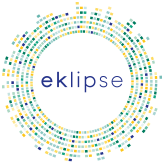Frequently Asked Questions
A “Call for Requests” is the key first step of the Eklipse process. In this stage, policy and other societal actors are invited to identify topics or evidence needs relating to biodiversity and ecosystem services. Eklipse helps to fill the information gaps through in-depth analysis and a consolidated view from science and other knowledge holders to develop a clear EU policy relevance. For more information, read our Open Call for requests. For more information about the eligibility criteria, read chapter 7 in the Description of the Call. For more information about the eligibility criteria, read chapter 7 in the Description of the Call Eklipse has developed an innovative, ethical and robust process to address the need for knowledge-based evidence, with the leverage of collective intelligence from a diversity of experts in a broad set of countries. It ensures that the synthesized knowledge will be relevant and legitimate — which allows it to be used effectively, even on contested issues. To decide if Eklipse is the right mechanism for you, visit this webpage. Eklipse answers requests in a four steps process: 1. Screening phase: This step aims to identify the policy and societal relevance of the request at the European level and the general needs of the requester, resources available, and timeframe. 2. Scoping phase: A scoping group liaises with the requester to: During the scoping phase, the Eklipse scoping group looks for knowledge and expertise on the refined question to identify the state-of-the-art and avoid potential duplications. This process is done via an open Call for Knowledge using social media forums. Once Eklipse and the requester agree on the reformulation, the request can move forward, and the answering process can start. 3. Answering phase: Based on a Document of Works developed during the scoping phase under the supervision of the scoping group and in close collaboration with the requester an open Call for Experts will be announced to invite experts to create an Expert Working Group (EWG). This EWG consists of scientists and practitioners experts in the request field and has the crucial responsibility of answering the request. 4. Final Synthesis: Requesters receive targeted responses based on the best available knowledge within 6-18 months, depending on their needs and the complexity of their request. All final synthesis and additional end product(s) are widely disseminated and made publicly available. More information can be found on: https://eklipse.eu/process/ An Expert Working Groups (EWGs) is in charge of answering the requests received by Eklipse. They are selected by the Knowledge Coordination Body (KCB) through open calls and consist of scientists and practitioners experts in the field of the request. Read our Guidance note 6 to learn more about the EWGs. The budget needed is significantly influenced by the methods selected and the scope of the question. Our costs in the past have ranged from ca. 20.000€ for a rapid evidence assessment to ca 75.000€ for a systematic review; the time required after scoping from 5 to 15 months. The cost of the scoping phase is fixed at 2.000 €. In order to help to define a budget, Eklipse Method Expert Group (MEG) created a tool called MAGICKS (Method Application and Guidance In Conducting Knowledge Syntheses), to inform on the process of identifying which methods meet your synthesis needs, as well as clarifying your synthesis parameters. More information about this application can be found here. If you have any other questions concerning this matter, don´t hesitate to contact us. Eklipse is not a funding institution and will not finance any of the requests. Nevertheless, Eklipse main goal is to support decision-making in relevant aspects of biodiversity and ecosystem services. So, if a request is selected for its policy relevance, Eklipse is available to support fundraising campaigns or search for funding by creating consortias.” If you have any questions concerning this matter, don´t hesitate to contact us. The requester is mostly involved in the first two phases of the Eklipse process to define its general needs, available resources and timeframe. Regular exchanges occur with the requester when refining the question, identifying how Eklipse could provide added value and proposing methods and approaches for answering the request. The requester will be informed of the advancement of the request at all steps but will not actively take part in answering the request. Usually, the duration of a call for requests varies from 6 to 8 weeks. At the moment, the 6th Call for Requests is open until the 19th March 2021, 6 pm CET.” If you have an ad-hoc request to address to Eklipse outside this deadline, please contact us directly. The requester cannot participate in answering its own request, as one of our aims at Eklipse is to ensure that all its activities are carried out ethically. Please learn more by reading about our Ethical Framework. The requests are selected based on the following criteria: For example, Eklipse received a request from its second call to synthesize knowledge on the effect of low-carbon energy policy on biodiversity and ecosystem services beyond the EU boundaries. This request’s background is based on the role of renewable energy sources in supporting a fossil fuel-free future and is controversial due to the associated pressures on landscapes, biodiversity, and ecosystems in Europe and beyond. The policy relevance of the request is built on the 2019 Global Sustainable Development Report (GSDR) and in the needs of the scientists mandated to draft the GSDR 2019 to seek a better understanding of the telecoupling effects of the EU’s low carbon energy policy on biodiversity and ecosystem services in countries globally. Requesters can present their questions to Eklipse and receive targeted responses based on the best available knowledge within 8-18 months. Important: the delay of answering a request depends on the general needs of the requesters, the knowledge synthesis methods selected, the timeframe and budget available. Eklipse has implemented an ethical infrastructure that guides interaction among all actors within Eklipse, as well as with requesters or any external stakeholder. Please visit our Ethical framework webpage to learn more about our measures and guiding values, and contact us directly if any reservations persist. The calls for requests are open twice a year. If you have an ad-hoc request to address to Eklipse outside the open calls timeframe, please contact us directly. Eklipse has previously selected the most relevant requests for decision-makers; these requests cover a wide array of topics,requiring an answer from experts based on the best available knowledge, and a thorough, transparent, reliable process to answer and ranging from nature-based solutions to electro-magnetic radiation. Selected requests are those more relevant for decision-makers, requiring an answer from experts based on the best available knowledge, and a thorough, transparent, reliable process to answer.” Below is an exhaustive list of Eklipse ongoing and past requests For a better overview of all our past and ongoing requests, visit our Requests webpage. You can receive information about the current Eklipse calls/activities by visiting our News section on our website´s homepage, registering to our mailing list “Keep me posted”, and following us on your favourite social media (LinkedIn, Twitter, Instagram, Facebook and YouTube). Call for Requests
Macro-algae culture and ecosystem services (ongoing)
Incorporating ecosystem services in mitigation hierarchy policy (ongoing)
Monitoring freshwater ecosystems (ongoing)
Impacts of green and blue space on mental health (ongoing)
Impacts of ElectroMagnetic Radiation (EMR) on wildlife
Impact evaluation framework for Nature Based Solutions
Environmental regulation, business and biodiversity
Integrating biodiversity research and knowledge at European and global scales
Biodiversity and the Common Agricultural Policy
Impacts of European energy policy on global biodiversity
Restoration of biodiversity and ecosystem services
Pollinator conservation measures
Post 2020 and transformative change
Incorporating nature’s diverse values in policy
Supporting European contributions to IPBES
Supporting science-policy dialogue at CoP-14
Load More



